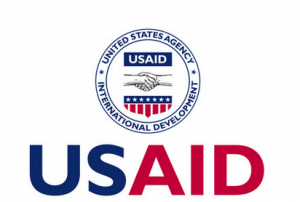USAID rolls out project to deepen accountability process in Ghana
 The United States Agency for International Development (USAID) has rolled-out a project to deepen accountability and transparency in local governance in Ghana, to make the assemblies more responsive to citizens’ needs.
The United States Agency for International Development (USAID) has rolled-out a project to deepen accountability and transparency in local governance in Ghana, to make the assemblies more responsive to citizens’ needs.
The USAID Ghana Mission Director, Mr Andy Karas, at a community durbar in Amanase in the Ayensuano District of the Eastern Region, said the USAID has noticed that progress in education, health, agriculture and other sectors depend largely on good governance, especially accountability at the local level.
He said it is in line with this that the USAID is providing funds for the implementation of the Ghana’s Strengthening Accountability Mechanisms (GSAM) project, which seeks to improve citizens capacity to engage with their local government authorities to demand accountability and improved performance.
Mr Karas was in the company of the Deputy USAID Mission Director, Mr Steven Hendrix, Chief of Party for the GSAM project, Mr Clement Tandoh and Country Director for CARE International in Ghana, Mr Elkanah Odembo.
Hopeline Institute, a civil society organisation (CSO), organised the durbar to share the findings of performance audits of the District Assembly conducted by the Ghana Audit Service as part of the GSAM project.
The audit service examined two projects constructed by the assembly, specifically how the assembly initiated these projects, how it procured and engaged the contractors, how it supervised, monitored and reported on the progress of work, among others.
According to the Programmes Coordinator of Hopeline Institute, Mr Ebow Graham the audit found that the assembly followed due process in initiating, planning and budgeting for these projects.
It also adhered to the Procurement Law in procuring and engaging contractors. However, there were some lapses in monitoring and supervision of the projects.
Whilst acknowledging that the assembly involves the community in initiating the construction of a 16-seater aqua privy in Amanase, the Chief, Barima Asamoah Asare Ampofo said the community had great difficulty using the toilet due to the stench.
He and other community members entreated the assembly to provide an improved toilet facility and other essential projects.
“We want the assembly to work on the market because when it rains, water goes in there,” said Gladys Kumi, a middle-aged woman.
Responding to the audit findings and the reactions of the citizens, the District Coordinating Director, Alhaji Mohammed Avonu Akape gave the assurance that the Assembly would continue to work in the interest of the communities and address the issues raised.
Although the district is relatively new, the Director said there was ample evidence that the assembly had done well in providing a lot of social amenities.
CARE International in Ghana, IBIS and ISODEC in collaboration with the Ghana Audit Service, are implementing the five-year GSAM project seeking to improve transparency, accountability and performance at the local government level, particularly in the planning and implementation of capital development projects.
Source: GNA
